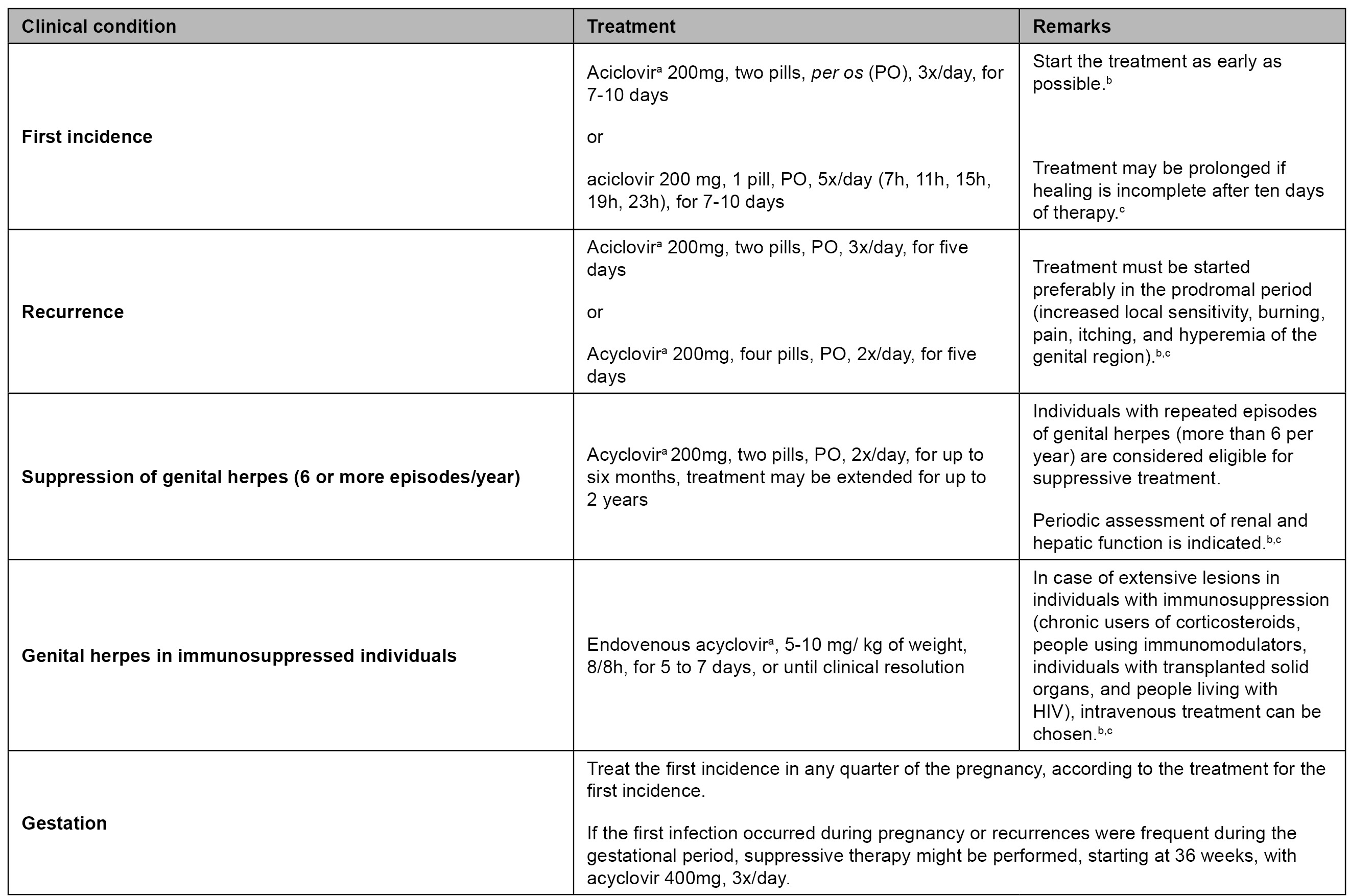Abstract
Infections that cause genital ulcers are one of the themes comprising the Clinical Protocol and Therapeutic Guidelines for Comprehensive Care for People with Sexually Transmitted Infections, published by the Brazilian Ministry of Health in 2020. The Protocol and Guidelines have been developed based on scientific evidence and validated in discussions with specialists. This article addresses clinical genital ulcer syndrome caused by sexually transmitted infections and its most common etiological agents: Treponema pallidum (syphilis), herpes simplex virus-2 (genital herpes) and herpes simplex virus-1 (perioral herpes), Haemophilus ducreyi (chancroid), Chlamydia trachomatis serotypes L1, L2 and L3 (lymphogranuloma venereum), and Klebsiella granulomatis (donovanosis). Epidemiological and clinical aspects of these infections and guidelines for their diagnosis and treatment are presented, including strategies for surveillance, prevention, and control actions to support health managers and professionals in the qualification of care.
Keywords:
Syphilis; Chancre; Genital herpes; Chancroid; Lymphogranuloma venereum; Granuloma inguinale
Highlighted excerpt:
Approximately 70% of the genital ulcers attended in specialized clinics are due to sexually transmitted infections, particularly in adolescents and young adults.

 Thumbnail
Thumbnail
 Thumbnail
Thumbnail
 Thumbnail
Thumbnail
 Source: adapted from the Clinical Protocol and Therapeutic Guidelines for Comprehensive Care for People with Sexually Transmitted Infections, 2020
Source: adapted from the Clinical Protocol and Therapeutic Guidelines for Comprehensive Care for People with Sexually Transmitted Infections, 2020 Source: Clinical Protocol and Therapeutic Guidelines for Comprehensive Care for People with Sexually Transmitted Infections, 2020
Source: Clinical Protocol and Therapeutic Guidelines for Comprehensive Care for People with Sexually Transmitted Infections, 2020 Source: adapted from the Clinical Protocol and Therapeutic Guidelines for Comprehensive Care of People with Sexually Transmitted Infections, 2020
Source: adapted from the Clinical Protocol and Therapeutic Guidelines for Comprehensive Care of People with Sexually Transmitted Infections, 2020